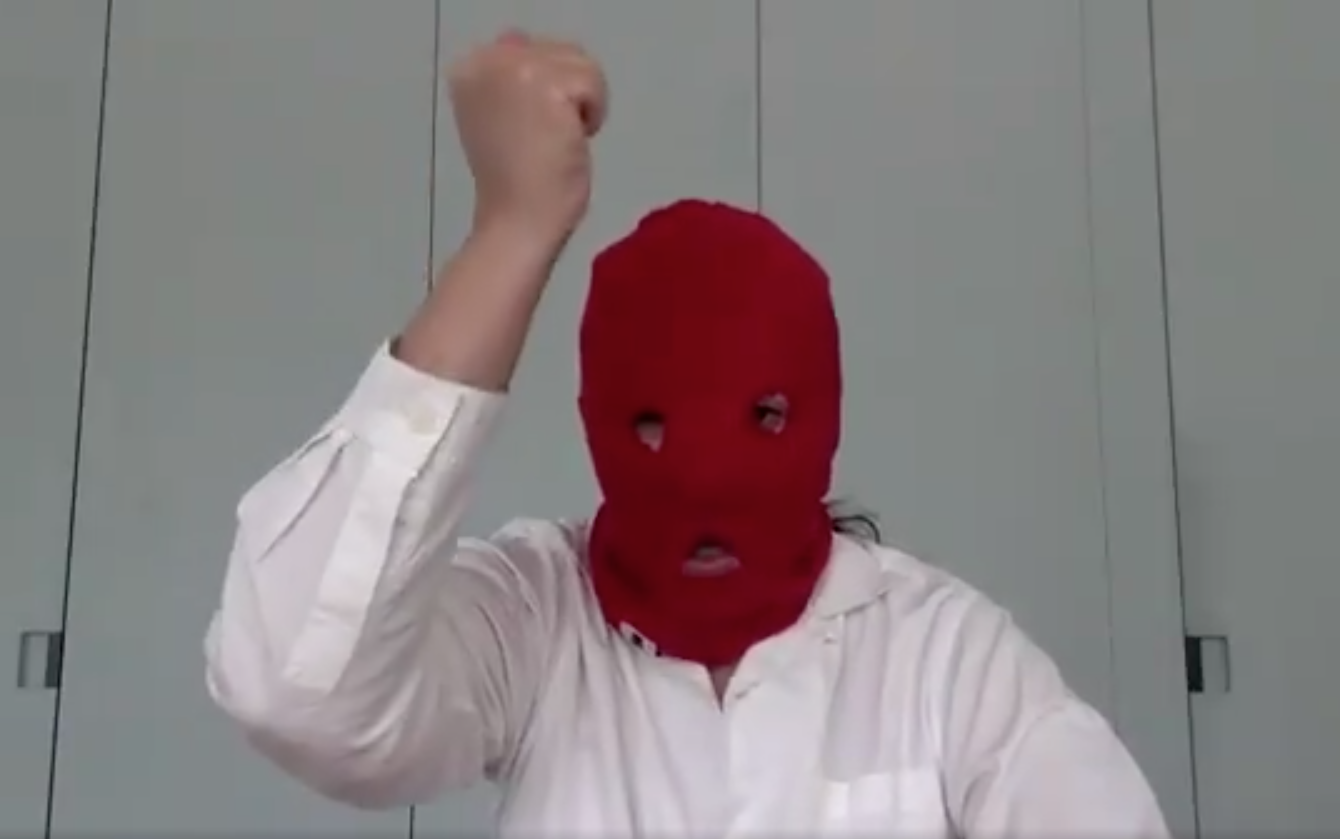
The acclaimed performance artist Marina Abramović has taken a stand to support Pussy Riot in a new video, declaring solidarity with the Russian activist art collective after four members were arrested at the final World Cup soccer match in Russia on July 15. The members, who had burst onto the field wearing Russian police costumes and huge smiles for a performance work they have titled “Heavenly Policeman Enters the Field,” have each been sentenced to 15 days in prison and a three-year ban from sporting events.
In a video released yesterday on Pussy Riot’s Twitter, Abramović sits in front of her computer wearing a bright red Pussy Riot balaclava (the collective recently launched a line of merchandise to support free press in Russia through the platform Mediazona). The Serbian artist told artnet News the making of the video was a spontaneous decision.
Intermittently raising her fist, Abramović repeats three times “I am for Free Pussy Riots,” before lifting the balaclava from her face to reveal herself. She smiles at the camera and repeats the line a fourth time.
The number of repetitions is likely a symbolic choice—one for each member who is still being detained by the Russian police.
“Pussy Riots have the courage and freedom to express their opinions,”Abramović tells artnet News. “This is the spirit we need today more than ever and I am supporting it.”
Abramović’s support for the group is hardly shocking. The artist has already established links with at least one of its main members, Nadya Tolokonnikova, and their respect and admiration for each other was apparent when they spoke on the same New York Times “Times Talks” panel this May. At one point in the talk, Abramović proclaimed to the audience, “I love this kid. This kid is amazing.” Abramović then encouraged everyone in the audience to read the letters Tolokonnikova exchanged with philosopher Slavoj Žižek during her two-year prison stretch after Pussy Riot’s famous 2012 performance at Moscow’s Cathedral of Christ the Savior, singing their song, “Mother of God, Chase Putin Away.” Tolokonnikova was 22 years old at the time.
During the panel discussion, mediator Melena Ryzik asked them both about the rebelliousness and “appetite for trouble” present in both of their work. Remembering her upbringing, Abramović recalls how “everything was forbidden” in the former Yugoslavia, until its dissolution in 1992. In the following years, the country tumbled into a bloody war. “Coming from this kind of place, I was born in rebellion. I have to rebel everything… just to create my own voice,” she said.